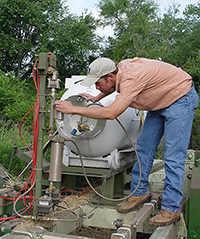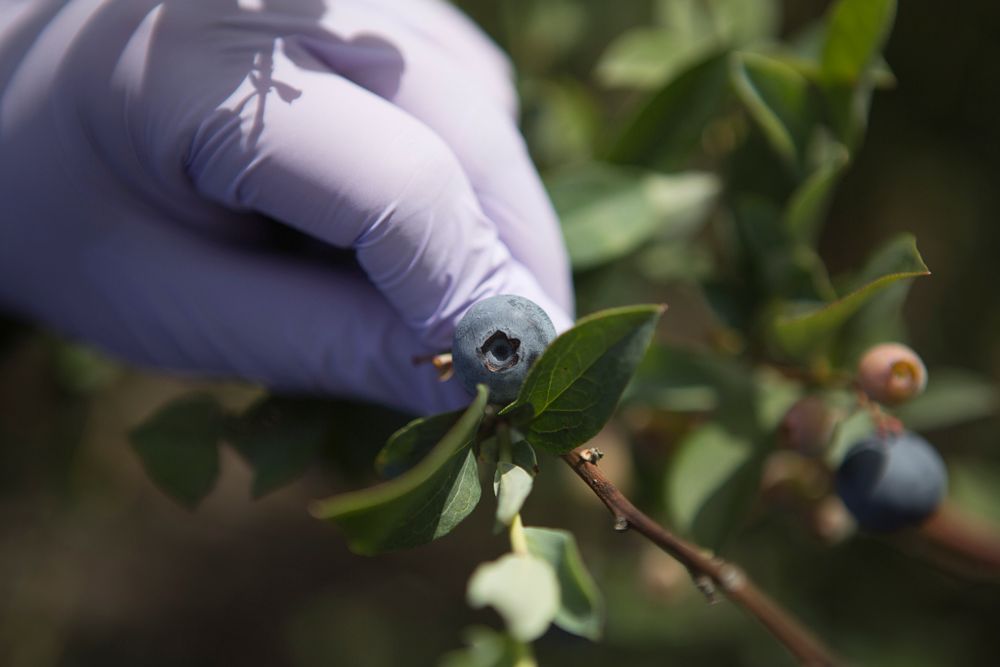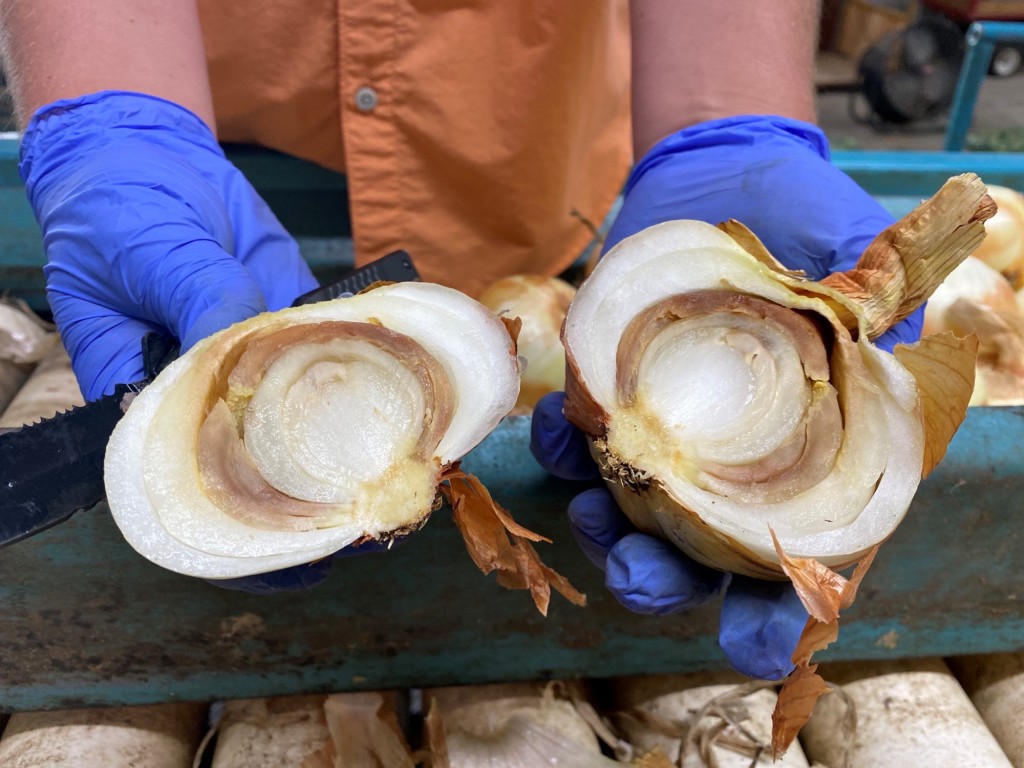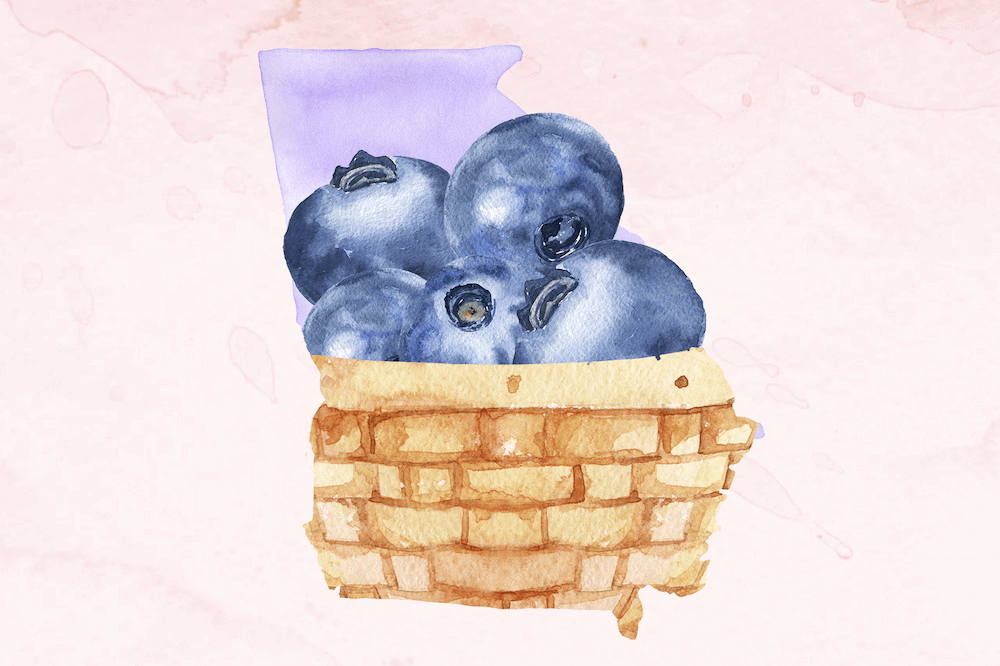Shane Curry’s work with blueberries, pecans and organics in southeastern Georgia has helped garner the University of Georgia Cooperative Extension Agriculture and Natural Resources agent a 40 under 40 recognition by Great American Media Services, publishers of Fruit Grower News and Vegetable Growers News.
Curry, who has worked in Extension for 12 years, including seven years in his current post in Appling County, has participated in UGA blueberry research trials that have helped Georgia ascend to the top of the national rankings in blueberry production. He will be honored at the Great Lakes Fruit, Vegetable and Farm Market on Dec. 4, 2018, in Grand Rapids, Michigan.
“It feels good when you consider there’s only 40 of us being honored across the nation and the university has two of those 40 on there,” Curry said. Extension vegetable plant pathologist Bhabesh Dutta was also selected. “It’s a great honor when the work you do for the better part of your career gets recognized — that’s a great achievement.”
The award recognizes outstanding young professionals in the nation’s fruit and vegetable industry who demonstrate excellent commitment to making their mark through innovation and leadership.
Appling County is the third-largest blueberry-producing county in Georgia and the largest organic blueberry-producing county in the state.
Through research trials with UGA specialists in Appling County, Curry found a way to combat nematodes, which are microscopic parasites that attack the plant’s roots. Using soil fumigants and adding pine bark mulch when blueberry bushes have to be replanted helps to fight pests, specifically nematodes, according to Curry.
Growers typically plant new blueberry plants every 10 years or when diseases and other problems reach a certain threshold. Curry’s research emphasizes the need to combine soil fumigants with pine bark before treating the soil prior to replanting. This greatly reduces the nematode populations and slows the pest’s development.
“The plants growing with added pine bark reacted better than those with soil fumigants alone. Growers have been using pine bark with highbush blueberries for years, so this isn’t new. It does reiterate that we don’t need to cut corners or try to save money by leaving pine bark out,” Curry said.
He’s also part of a coordinated effort between Extension agents and specialists to research blueberry leaf rust. This foliar disease causes small spots to appear on blueberry leaves. Infected leaves usually drop prematurely, and defoliation leads a reduce number of blooms and lower yields the following year, he said.
Curry’s disease research centers on a newer fungicide that works extremely well on blueberry leaf rust. Instead of multiple applications, this treatment only requires one or two sprays.
He said Extension research is underway to determine a yield impact as a result of this fungicide, and the group is working toward getting a label for the chemical treatment.
Curry also started and coordinates the Southeast Georgia Pecan Field Day each year in Baxley, Georgia, where more than 200 pecan growers from eighteen counties attend. He is considered an area expert in pecan trees and has been invited to multiple meetings across Georgia to give presentations on pecan production.
Appling County is diverse in its agricultural production. According to Curry, every year the county produces around 30,000 acres of cotton, 10,000 acres of peanuts, 5,000 acres of corn, 1,000 acres of tobacco and 2,000 acres of pecans. There are also about 25 acres of strawberries.
“Things are constantly changing so you’ve got to know a lot about a lot of different things. You could easily be focused on blueberries and then get a call on cotton,” Curry said. “You have to be very diverse and knowledgeable of all those things and be able to help a farmer when you receive a call on any one crop.
“If there’s one thing about Extension, it’s not the same thing every day and that’s what I like about it.”
(Julie Jernigan was an intern on the UGA Tifton campus.)









